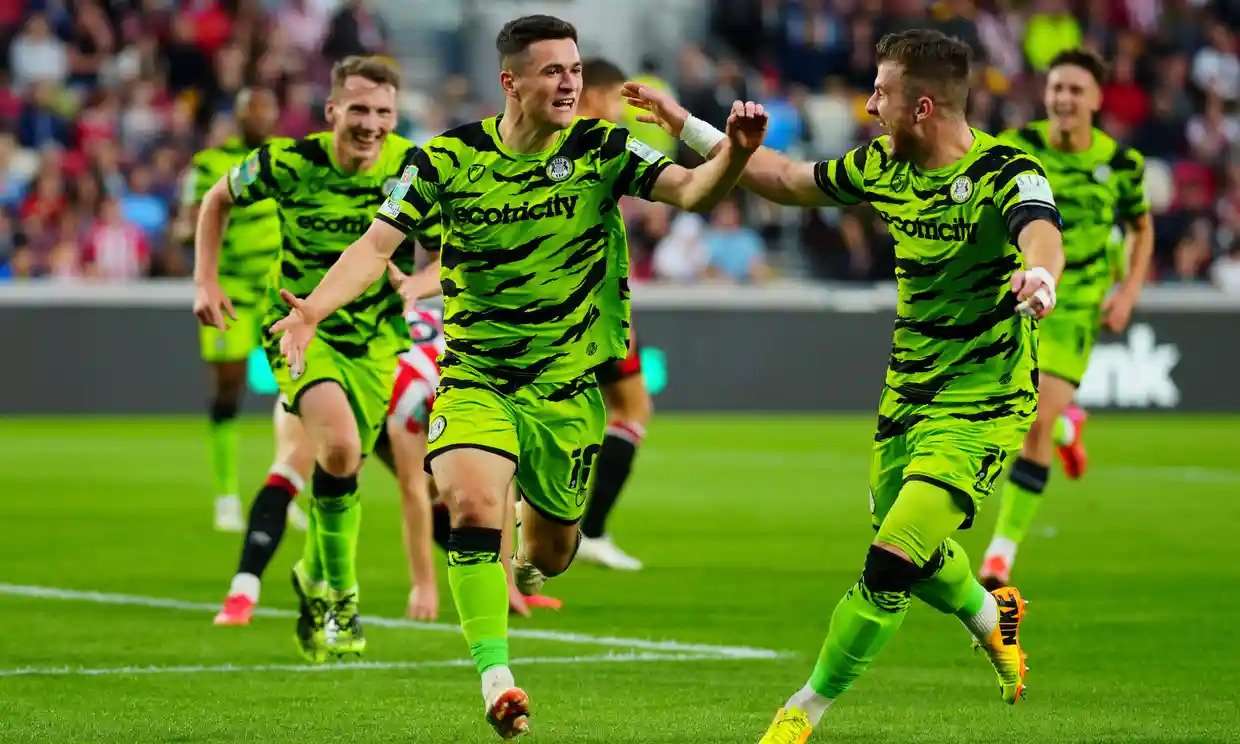Following two world cups marred by controversy, years of oil state, oligarch and hedge fund involvement at the highest level, and the ever-rising cost of following the world’s most popular sport, it’s easy to see why many people are falling out of love with football.
Swimming against the tide, English League One outfit Forest Green Rovers are the unsuspecting source of a seldom found footballing good news story. While elite clubs across the world flirt with oil state ownership and the riches that come with it, “The Green” have staged an in-house revolution to become the first United Nations recognised carbon neutral football club.
While growing inequality in the footballing sphere is a central concern for those interested in the longevity of the game, many are unaware of football’s contribution to climate change. Sport as a whole has a global carbon footprint equivalent to Tunisia, and football with it’s never-ending traveling for away days, continental competitions, equipment manufacturing, and stadiums large enough to host a small city’s worth of people, is the greatest contributor of all.
The emission heavy nature of football is self-destructive. A study in England found that one quarter of English league football grounds will be at risk from flooding every season if global warming continues at its current rate. On top of this, players will be expected to play through exhausting warmer temperatures, and games will increasingly be called off or made impossible to reach for fans because of extreme weather events.
Those involved in the sport are slowly waking up to the scale of the problem though. In 2015, Carlisle United was forced to close their stadium for three months at a cost of three million pounds due to flooding damage caused by Storm Desmond. When a 2021 study revealed that the storm was 59 percent more likely to occur because of climate change, the Carlisle manager was quick to push for climate-friendly progress.
So how did this club, playing in the third level of English football in front of an average attendance of below 4,000 people, become the first UN-recognised carbon-neutral football club and grab the attention of the world’s top teams?
Their transformation began in 2010 with the takeover of the club by Dale Vince, a green energy industrialist who wanted to transfer his knowledge and ambitions to a new project. He quickly banned the players from eating red meat, and soon after changed the food available at the stadium to an all vegan menu.
In addition, he installed solar panels to the stadium in order to cut emissions, created the world’s first organic football pitch, and even brought in a solar powered lawnmower to maintain it. For the fans, Vince introduced football shirts made from recycled coffee grounds and will only release a newly designed kit every two years. Along with greatly cutting emissions, it removes financial pressures from fans who may struggle to afford the newest design each season.
The most recent eyebrow raising move by the club came in 2022 as they revealed that the urine of away fans would be converted into clean water and fertiliser. A spokesperson for the club said:
“Space mission-inspired closed loop technology will convert fans’ urine into clean water and a concentrated fertiliser product, both of which can be used to keep the pitch in top condition… the award-winning modular units will treat wastewater from the urinals through on-site physical treatment. the modules also have the potential for further treatment options of wastewater from the toilets and handwashing facilities to produce compost and flush water.”
The next move for Forest Green is the construction of their planned Eco Park Stadium, a new home for the club, which is set to be the greenest in the world. It will be built almost entirely with sustainably sourced wood and is to be fitted out with electric car and bike charging stations among other eco-friendly facilities.
The kind of outside the box thinking shown by Forest Green, while easy to laugh at for opposing fans, is what is needed on a mass scale should the football industry wish to curb its self-destructive practices.
Hailed the “greenest team in the world” by FIFA, they have reduced their emissions by 42% since 2011 and have mockingly been called “dirty vegans” by rival fans along the way. This nickname is worn as a badge of honor though, and is one that more clubs should aspire to.
While Forest Green is a shining example of how to operate in a climate-friendly fashion, not enough clubs are following suit. Should those from every level of the footballing hierarchy wish to continue playing as they have for well over 150 years, they will need to accept progress and make the switch to a cleaner way of operation.







